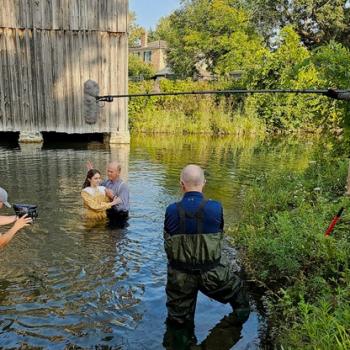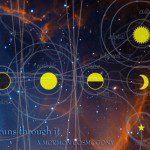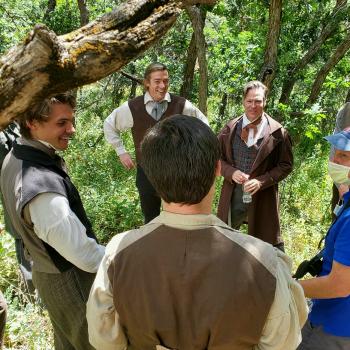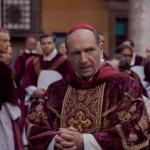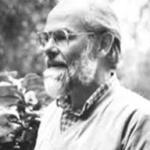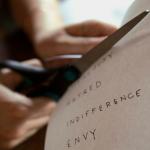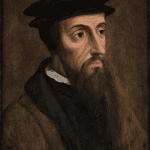
Wikimedia Commons public domain image
Three new items went up on the website of the Interpreter Foundation today:
Nibley Lectures: Time Vindicates the Prophets — Prophets and Office
Between 7 March 1954 and 17 October 1954, Hugh Nibley delivered a series of thirty weekly lectures on KSL Radio that were also published as pamphlets. The series, called “Time Vindicates the Prophets,” was given in answer to those who were challenging the right of members of the Church of Jesus Christ of Latter-day Saints to call themselves Christians.
This lecture discusses the degree to which a spiritual message can or must be implemented in a physical manner.
Once again, Jonn Claybaugh kindly shares a concise set of notes for students and teachers of the “Come, Follow Me” Old Testament curriculum.
The Interpreter Radio Roundtable for Come, Follow Me Old Testament Lesson 33, “The Lord Is My Shepherd,” on Psalms 1–2; 8; 19–33; 40; 46, features Neal Rappleye, Jasmin Rappleye, and Hales Swift. Originally broadcast as part of the 3 July 2022 installment of the Interpreter Radio Show, this roundtable has now been extracted, denuded of commercial and other interruptions, for your listening pleasure and edification. However, the complete two-hour program may still be heard at https://interpreterfoundation.org/interpreter-radio-show-July-3-2022/. The Interpreter Radio Show can be heard live each and every week of the year on Sunday evenings, from 7 to 9 PM (MDT), on K-TALK, AM 1640. If, though, radio doesn’t work out for you for some reason, you can listen live nevertheless via the Internet, at ktalkmedia.com. I’ve done it. I know that it works.
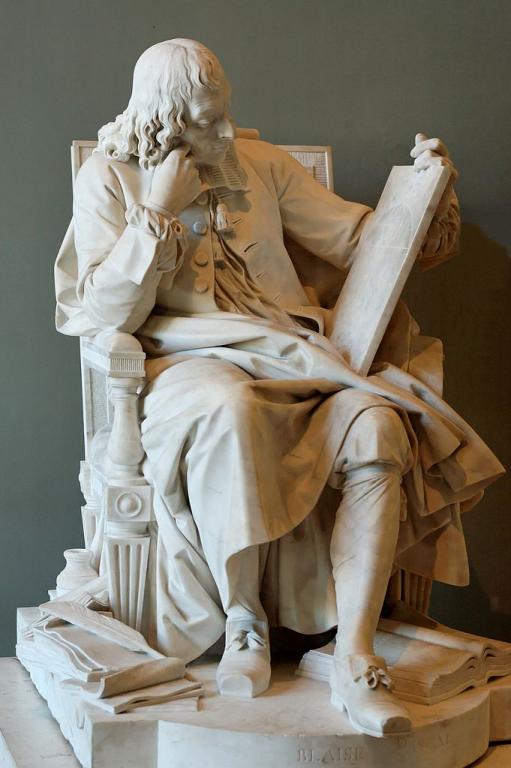
(Wikimedia Commons public domain image)
The 2022 instantiation of the annual FAIR conference begins tomorrow (Wednesday) morning. Check-in will begin at 8:15 AM in the Experience Event Center in Provo, Utah. The Event Center is located at 1440 N Moon River Dr, Provo, UT 84604. There is parking to the south of the Event Center and to the south-east, behind Maceys.
The program for the conference is available here, although there will be a printed program available on site as well. I’m really pleased that the program will be available via streaming at no cost. But I have to candidly saying that being there in person is far better. I, for one, always look forward to seeing people there.
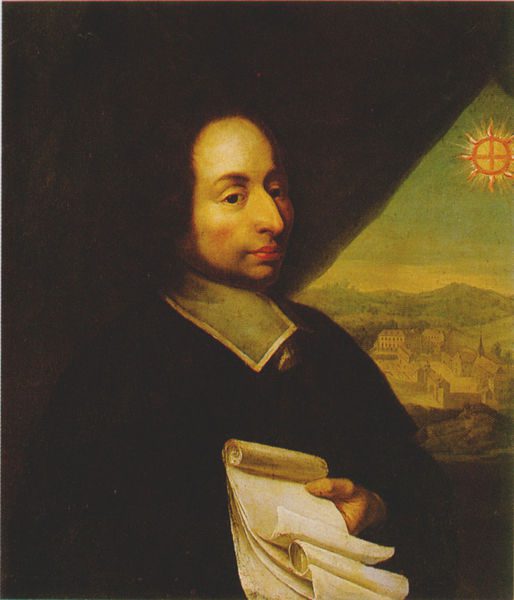
(Wikimedia Commons public domain image)
Over the past few hours, I’ve had a brief and quite unsatisfying exchange with a fellow who showed up here from another message board, a place where my personal inadequacies, depravities, and buffooneries are a significant and perpetual theme. His major focus, so far as I can determine, was to challenge me about the inadequacy of personal spiritual experience as a basis for orienting one’s life. (There’s very possibly something autobiographical behind his challenge.) Evidently, though, he has now bowed out of the conversation. At least, he’s announced that he’s done so on his home board. He’s finished with me. And his announcement was accompanied by a couple of appropriately sneering expressions of personal contempt for me that, I’m sure, will win the approval of his audience there and gain enhanced “street cred” for him. I expect that I’m simply too illogical and disingenuous for his tastes. And he explicitly says that I’m too old for him to want to waste any more time on me. Alas! My ludicrously advanced age is yet another of my defects!
Reflecting on his assertions as to the impotence of personal spiritual experiences, though, is good for me. I find myself thinking, yet again and from a slightly different angle, about such individual religious experiences as those related in the Bible about Isaiah and Saul of Tarsus, and about St. Thomas Aquinas (see “Who is the ‘Angelic Doctor’ and what did he write?”), and about the Indian emperor Ashoka (see “Indian ruler sowed seeds of Buddhism”), and about St. Joan of Arc. And about Joseph Smith’s First Vision. And about this one:
When the great seventeenth-century French mathematician, physicist, and philosopher Blaise Pascal died at the age of just slightly past thirty-nine in 1662, his servant found a small piece of parchment that had been sewn into his coat. At the top of the paper, Pascal had drawn a cross. Underneath the cross were these words:
In the year of the Lord 1654
Monday, November 23
From about half-past ten in the evening
until half-past twelve.
Fire
God of Abraham, God of Isaac, God of Jacob
Not of philosophers nor of the scholars.
Certitude. Certitude. Feeling. Joy, Peace.
God of Jesus Christ,
My God and thy God.
“Thy God shall be my God.”
Forgetfulness of the world and of everything, except God.
He is to be found only by the ways taught in the Gospel.
Greatness of the soul of man.
“Righteous Father, the world hath not known thee,
but I have known thee.”
Joy, joy, joy, tears of joy.
Jesus Christ.
I have fallen away: I have fled from Him,
denied Him, crucified him.
May I not fall away forever.
We keep hold of him only by the ways taught in the Gospel.
Renunciation, total and sweet.
Total submission to Jesus Christ and to my director.
Eternally in joy for a day’s exercise on earth.
I will not forget Thy word. Amen.
This was Pascal’s reminder to himself of what had evidently been an intense and very personal two-hour religious experience. It occurred when he was approximately thirty-one years old. The historical evidence suggests that he kept the event secret until his death. However, although we know few if any details about, he plainly regarded it as an encounter with God, and as so personally significant that it transformed him and altered the course of his life. He kept his record of it — what scholars today often call “The Memorial” — in the lining of his coat, close to his heart. For the eight years of life that remained to him thereafter, he carefully transferred the document from one coat to another, newly sewing it into the lining every time that he changed his clothing. Obviously, the note preserved Pascal’s memory of a treasured experience, something to which he could return over and over again.
There is, to me, something very moving in Pascal’s story.




